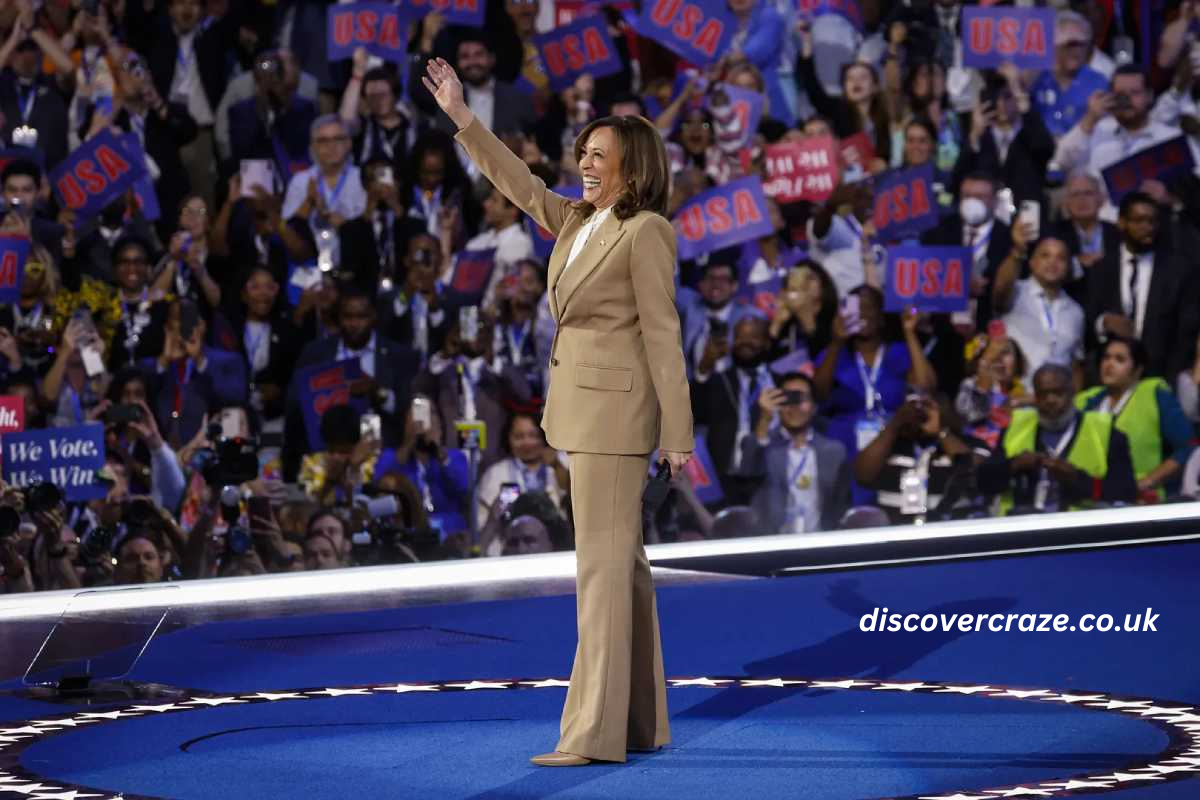Introduction
In the modern era of social media, public figures, especially those working in the media industry, face intense scrutiny. Social platforms like Twitter, Facebook, and Instagram have given everyone a voice, but unfortunately, it also means that many people use those platforms to express frustration, anger, and even hostility toward media outlets and personalities. Recently, Kelly Bates, a respected journalist and anchor at NBC 10, found herself at the center of such public backlash. However, rather than letting the situation escalate or responding in kind, Bates took a stand by appealing to her supporters to keep their anger focused on the issue rather than on NBC 10 or its staff. She requested, “Kelly Bates asks supporters not to take out their anger on NBC 10…”
This request is more than just a personal plea—it is a reflection of the broader issues facing media professionals and public figures in today’s society. It speaks to the growing polarization between news outlets and their audiences, the role of social media in amplifying voices, and the responsibility that both the public and the media hold in managing these complex relationships. This article will explore the situation in greater detail, analyzing the reason behind Kelly Bates’ message, the importance of empathy in digital discourse, and how the role of social media has changed the landscape of media and public trust.
Understanding the Background: What Led to Kelly Bates’ Request?
Kelly Bates’ public request that supporters not take out their anger on NBC 10 came after a controversial incident that left many viewers upset. While the exact circumstances are still being debated, the situation seems to have stemmed from a news story or decision by NBC 10 that upset a portion of their audience. The event could have been a perceived misrepresentation of facts, a decision that didn’t align with viewer expectations, or an issue involving the network’s coverage of a sensitive topic. Regardless of the specifics, the public response was swift and negative. Online platforms like Twitter and Facebook lit up with criticism directed at the news organization.
As tensions rose, Kelly Bates took to social media with a direct message to her followers, urging them to refrain from directing their frustration toward the network. In her plea, she explained that while anger and disappointment were valid emotions, it was important to express those feelings constructively and not let them spiral into harmful behavior that targeted NBC 10 or its staff. “Kelly Bates asks supporters not to take out their anger on NBC 10…” was an effort to prevent online harassment and personal attacks that could harm the reputation of individuals working at the news outlet, who might not even be directly responsible for the controversial decision.
Bates’ stance demonstrated a great deal of courage and professionalism. Instead of inflaming the situation or ignoring it altogether, she took responsibility for calming down her supporters. This kind of leadership in the public eye is rare but necessary, as it reminds people to think critically about their actions, especially when dealing with sensitive issues.
The Role of Social Media in Amplifying Public Opinion

One of the key factors that contributed to the situation surrounding Kelly Bates was the power of social media. Platforms like Twitter, Instagram, and Facebook have transformed the way news and information are shared, making it possible for anyone with internet access to comment, critique, or even mobilize others around a particular issue. While this democratization of information can be beneficial, it also has its downsides.
In Bates’ case, the controversy quickly gained momentum as people used social media to express their anger. Negative comments flooded in, and in many cases, these comments targeted NBC 10 and its employees personally, rather than addressing the issue that caused the frustration. Social media made it possible for people to rally around the idea of holding the network accountable, but it also turned the situation into a mob mentality, where people lashed out without considering the consequences of their words or actions.
Kelly Bates recognized the dangers of this kind of online behavior. “Kelly Bates asks supporters not to take out their anger on NBC 10…” was a call for restraint. She understood that social media, for all its power to connect people and create awareness, also has the power to escalate conflicts. Her request was a direct appeal for empathy and thoughtful engagement rather than impulsive, reactionary behavior.
Bates’ plea highlights the growing role of social media in shaping public opinion and influencing how people interact with the news. It underscores the need for media professionals to be not only responsible in their reporting but also vigilant about the way their actions might influence public behavior on social platforms. In the era of social media, every statement can be amplified, and every issue has the potential to become a viral firestorm.
The Power of Media Figures in Shaping Public Response (Expanded to 400 words)
Public figures, especially those working in the media, hold a significant amount of power in shaping public discourse. They are often seen as authority figures who have the ability to influence opinions, and as such, they are expected to lead by example, especially in times of crisis. Kelly Bates’ request to her supporters to refrain from taking out their anger on NBC 10 is an excellent example of how media personalities can shape the direction of public discourse.
When a media personality like Bates speaks out, her words can have a ripple effect. Supporters are likely to listen to her call for a more measured approach and reconsider how they choose to express their feelings. By addressing her followers directly, Bates leveraged her platform to call for a positive and constructive response, rather than letting the anger fester and turn into an attack on the network or its staff.
Media figures, like Bates, must balance their role as journalists with their responsibility as leaders in their communities. While it’s essential to report the news accurately, it is equally important to encourage the public to engage with the news thoughtfully and with empathy. Bates’ message was a reminder that media professionals have a responsibility to promote calm and understanding, not just in their work but also in how they interact with their audience.
The power of media figures is immense. Whether it’s through a tweet, an on-air statement, or a personal plea, their influence can steer the conversation and prevent harmful narratives from taking hold. Kelly Bates’ actions reflect the responsibility that comes with having a public platform, and her leadership helped steer the conversation away from vitriol and towards understanding.
The Importance of Empathy in Media Relationships

Empathy is often the missing ingredient in online discourse, especially when emotions are running high. The internet allows people to share their opinions instantly, but in doing so, it can sometimes strip away the human connection that is necessary for understanding and resolving conflicts. This is where Kelly Bates’ message becomes so powerful. By asking her supporters not to direct their anger at NBC 10, she was calling for empathy—not only toward the network but also toward the individuals involved in making decisions that may have upset viewers.
In an environment where online anonymity can make people feel detached from the consequences of their words, empathy can serve as a counterbalance. Bates understood that while people may feel strongly about an issue, it’s important to consider the broader context and the impact of their actions. “Kelly Bates asks supporters not to take out their anger on NBC 10…” was a call for people to take a step back and reflect on the humanity of those on the other side of the screen.
Empathy helps create a more compassionate society, and it is particularly crucial when interacting with others on digital platforms. By asking for empathy, Bates reminded her followers that there are real people working behind the scenes at NBC 10, and these individuals might not be directly responsible for the issues causing frustration. Empathy fosters understanding and opens the door to productive conversations, whereas anger and blame often shut down dialogue.
By focusing on empathy, Kelly Bates also encouraged her followers to challenge the culture of outrage that often dominates social media. Instead of perpetuating negativity, she set an example of how to handle disagreements and frustrations in a way that promotes constructive solutions.
Conclusion
In conclusion, Kelly Bates’ plea for her supporters to refrain from directing their anger at NBC 10 is a powerful example of leadership, empathy, and professionalism in the digital age. It speaks to the challenges that both media personalities and their audiences face in a world where social media often amplifies emotions and leads to polarizing responses.
Bates’ request is not just about deflecting personal criticism but also about fostering a culture of empathy, respect, and responsibility in public discourse. By stepping forward with her message, Bates set an example for others to follow in times of tension and controversy. In doing so, she reminded everyone involved that while emotions like anger are natural, they should not be allowed to derail productive conversation or harm innocent individuals.
At a time when media trust is at an all-time low, Bates’ call for restraint is a much-needed reminder of the importance of maintaining civility. Her leadership in this situation shows that media figures, even when under scrutiny, can make a positive impact by guiding their audience toward empathy and understanding. As we continue to navigate the complexities of the digital age, it is crucial for everyone—whether journalists, viewers, or individuals—to approach online discourse with a sense of responsibility and respect for one another.
